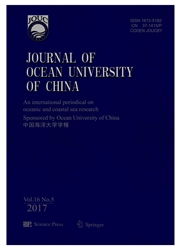

 中文摘要:
中文摘要:
Amphioctopus fangsiao 是最经济地重要的种类之一并且被认为是水产业的一个候选人。以便便于它的好规模的基因分析,我们成功地构造了一个规范的全身的图书馆并且在这研究开发了一套 microsatellite 标记。规范的全身的图书馆有 6.9 的一个存储能力
 英文摘要:
英文摘要:
Amphioctopus fangsiao is one of the most economically important species and has been considered to be a candidate for aquaculture. In order to facilitate its fine-scale genetic analyses, we constructed a normalized full-length library successfully and developed a set of microsatellite markers in this study. The normalized full-length library had a storage capacity of 6.9×105 independent clones. The recombination efficiency was 95% and the average size of inserted fragments was longer than 1000 bp. A total of 3440 high quality ESTs were obtained, which were assembled into 1803 unigenes. Of these unigenes, 450(25%) were assigned into 33 Gene Ontology terms, 576(31.9%) into 153 Kyoto Encyclopedia of Genes and Genomes pathways, and 275(15.3%) into 22 Clusters of Orthologous Groups. Seventy-six polymorphic microsatellite markers were identified. The number of alleles per locus ranged from 4 to 17, and the observed and expected heterozygosities varied between 0.167 and 0.967 and between 0.326 and 0.944, respectively. Twelve loci were significantly deviated from Hardy-Weinberg equilibrium after Bonferroni correction and no linkage disequilibrium was found between different loci. This study provided not only a useful resource for the isolation of the functional genes, but also a set of informative microsatellites for the assessment of population structure and conservation genetics of A. fangsiao.
 同期刊论文项目
同期刊论文项目
 同项目期刊论文
同项目期刊论文
 期刊信息
期刊信息
